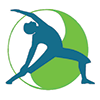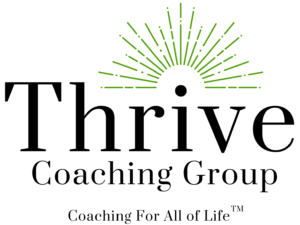An Exercise in Curiosity
 In the training program leading to my certification as a Coactive Coach, we completed numerous practical activities to build and hone our coaching skills. The other day I was reminded of one, that in the moment, seemed incredibly difficult. We were to spend thirty minutes looking under our kitchen sink. Yep. 30. Long. Interminable. Moments. And it wasn’t to be just a stream of observation and criticism, it was an exercise in curiosity. You see, we were specifically instructed to notice everything we could but without judgment. We were asked to get intentionally curious about what was under the cabinet, but not to say if it was good or bad. Thoughts of the disorder or stained cabinet flooring were steadily replaced with “I wonder why the pipes are bent that way”. Or, “what’s the story of the persona that installed this”.
In the training program leading to my certification as a Coactive Coach, we completed numerous practical activities to build and hone our coaching skills. The other day I was reminded of one, that in the moment, seemed incredibly difficult. We were to spend thirty minutes looking under our kitchen sink. Yep. 30. Long. Interminable. Moments. And it wasn’t to be just a stream of observation and criticism, it was an exercise in curiosity. You see, we were specifically instructed to notice everything we could but without judgment. We were asked to get intentionally curious about what was under the cabinet, but not to say if it was good or bad. Thoughts of the disorder or stained cabinet flooring were steadily replaced with “I wonder why the pipes are bent that way”. Or, “what’s the story of the persona that installed this”.
In all the years that have followed, I return again and again to this exercise, both as a practical activity and a metaphor. It leads to the potent understanding of curiosity and how it suspends judgment. My role as a coach is to get curious and ask powerful questions that deepen each client’s understanding of themselves. The benefits are transformational.
- Curiosity leads to an openness to what is present rather than the closure of judgment
- It inspires a willingness to learn rather than assume what is happening
- Most of all, it suspends judgment, which stifles creativity and growth and puts us at odds with potential learning
Developing the skill of curiosity is a beautiful way to stretch and grow, often with surprising results. As you do, you may find the scope of your questions expanding and deepening into what moves and motivates you. So, try this: open your cabinet, find a spot in nature that captures your attention, notice a meaningful object on your shelf, or anything else that can gain your focus for 30 minutes. If you notice judgment creeping in, simply acknowledge it and return to asking questions.
When you are finished take time to reflect on the experience. What did you learn about the experience? How might you apply this learning to other parts of your life? Drop us a note to let us know!
______
Learn more about us and our coaching services: academic coaching, career coaching, life coaching, transitions coaching.
An Exercise in Curiosity Read More »

 I am likely one of the world’s foremost experts in procrastination. Ok, maybe that is an exaggeration, but my office is never cleaner than when I am putting off a major task. Believe me, I would much rather vacuum, dust, straighten, and do all the other parts of organizing than put my effort behind something I need to finish that I just don’t want to do.
I am likely one of the world’s foremost experts in procrastination. Ok, maybe that is an exaggeration, but my office is never cleaner than when I am putting off a major task. Believe me, I would much rather vacuum, dust, straighten, and do all the other parts of organizing than put my effort behind something I need to finish that I just don’t want to do. Can we tell you how excited we are to be writing this post? We’ve each had days where we weren’t sure where we were headed. Heck, we still have those days! But we are here today, in part because of each other’s ability to listen, coach, challenge, and hold each other accountable.
Can we tell you how excited we are to be writing this post? We’ve each had days where we weren’t sure where we were headed. Heck, we still have those days! But we are here today, in part because of each other’s ability to listen, coach, challenge, and hold each other accountable.